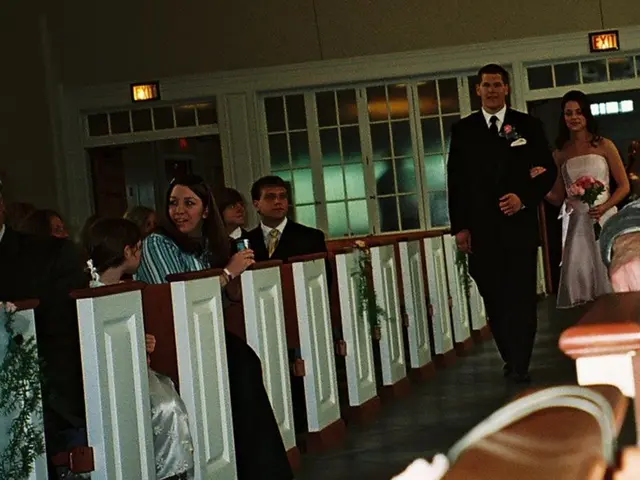Recollections of Uwe Timm: Witnessing the End of a Conflict in Coburg
"Military personnel, identified as GIs, approached and tapped on the door"
Uwe Timm, a renowned German author, shares his poignant memories of eighty years ago, when World War II ended. At the age of five, he was living in Coburg, a Bavarian town that experienced the tumultuous events of the closing phases of the war.
One of his earliest vivid memories is being pushed around in a pram, covered in wet towels, and witnessing fires burning on both sides of Osterstraße. He also remembers being forbidden to look at the street due to the presence of dead bodies. Tragically, his family's apartment was destroyed during a bombing raid in 1943, but his father, who was on vacation at the time, managed to evacuate the family early.
In coburn, Timm recalls German soldiers digging trenches by the Itz River. When the Americans arrived, they simply pushed aside the makeshift barricade. There was some shooting, but the memory that stands out the most is the arrival of the Black Panthers. Upstairs, American soldiers found deserting Wehrmacht uniforms, causing them to become enraged and inquire if there were still German soldiers in the house.
After the war, the adults struggled with their past, often saying, "I knew nothing" or "We had nothing to do with it." The new order was not yet in place, as people were still afraid and uncertain. TheOverflow of displaced people and the looting of resources compounded the problems faced by the town.
The arrival of the Americans brought about change, with their casualness and consumer possibilities captivating the Germans. They closely observed the Americans and their new ways, like the absence of military commands, the sound of rubber-soled shoes, and the taste of American chocolate. These changes marked a significant turning point in the post-war landscape, signaling the start of a new identity for the German people.
The term "the zero hour" is questionable since the reconstruction of old relationships was not entirely eradicated. The denazification process became increasingly lax due to the fear of communism and the escalating East-West conflict. Despite the challenges, the memory of liberation was indeed palpable. Timm recalls participating in looting a military camp, as his mother also took items for the family- a small act of defiance and relief in the face of adversity.
Uwe Timm's writings often revolve around significant historical events, drawing upon his personal experiences and the collective memories of the German people during and after World War II. His works, such as "The Discovery of the Currywurst" and "At the Example of My Brother," offer insights into the complexities of post-war Germany and the search for moral reckoning and understanding.
- Uwe Timm recalls German soldiers digging trenches by the Itz River in Coburg, a town he lived in during the closing phases of World War II.
- The denazification process in post-war Germany became increasingly lax due to the fear of communism and the escalating East-West conflict.
- Timm's writings often revolve around significant historical events, drawing upon his personal experiences and the collective memories of the German people during and after World War II.
- Tragically, during the war, Timm's family's apartment was destroyed in a bombing raid in 1943, but his father, who was on vacation at the time, managed to evacuate the family early.









